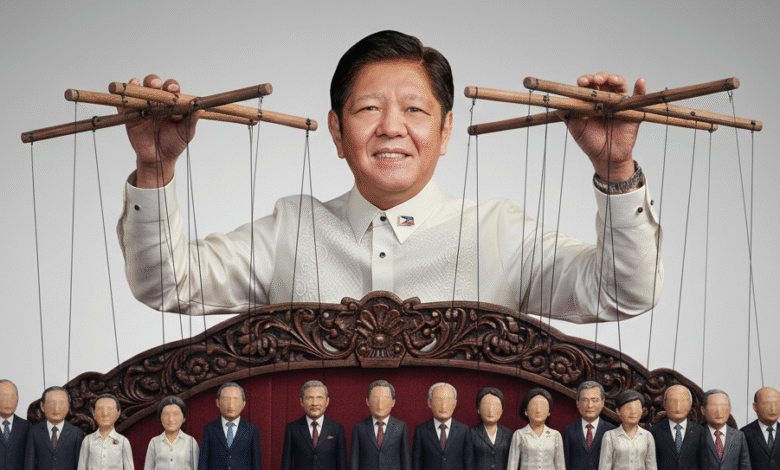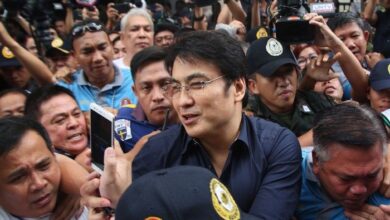
The Marcos Game Returns: Musical Chairs in Today’s Cabinet
Ralph Recto, long known online as “the VATman,” now sits as Executive Secretary after Lucas Bersamin resigned. Officials framed this shuffle as an act of delicadeza after investigators named several offices in connection with alleged anomalies in flood-control projects. The change comes at a tense moment, as public distrust of the Marcos administration intensifies. Confidence in institutions is under pressure, and political stability feels increasingly fragile.
What Just Happened?
Lucas Bersamin and Amen Pangandaman stepped down as Executive Secretary and Budget Secretary, respectively. Ralph Recto took over as Executive Secretary, Frederick Go as Secretary of Finance, and Rolando Toledo as Secretary of the Department of Budget and Management.
However, the resignations may not have been entirely voluntary. Lucas Bersamin said he “did not resign,” claiming he was told over a phone call that he needed to leave. The circumstances suggest these changes were orchestrated by forces behind the scenes, using the ongoing flood-control investigations as leverage. It is a reminder of a system where alliances and political calculations often outweigh continuity or long-term governance.
Cabinet positions, once meant to anchor stability and expertise, have become moving pieces, serving as a mechanism for managing both internal politics and external expectations rather than as a foundation for sustained policy. The public watches as power rotates, often without explanation, and the institutions begin to show signs of strain.
A Parallel History
The recent shuffle creates the illusion of patterns seen before. Like father, like son, the leadership rotations resemble the final years under Marcos Sr., when power flowed like an electric current through government halls. The system kept any one person from consolidating authority. The military became a stage for frequent rotations and purges.
But when key allies eventually broke ranks, their defections exposed the regime’s weakness. Historians later noted that these shifts were less about effective governance than survival. The constant movement created a house of cards, fragile and dependent more on loyalty and fear than structural strength.
Game of Musical Chairs
When leadership becomes a game of musical chairs, the consequences extend far beyond palace walls. Programs falter as officials rotate faster than policies can take root. Governance becomes improvisation, responsibility diffuses, and mistakes or corruption slip through gaps without clear accountability. For those inside, the system provides flexibility. For the public, it breeds uncertainty. Political expediency dominates over institutional resilience, revealing a fault line between short-term maneuvering and the long-term needs of the nation.
This constant churn is already rattling markets. The Philippine Stock Exchange has plunged, and investors are reacting to the uncertainty. Foreign direct investment has weakened, with net inflows dropping amid heightened political noise. Fitch Ratings has flagged these governance risks as a drag on the Philippines’ economic outlook.
Business groups warn that this instability could stall progress on reforms and fuel an exodus of long-term capital. As political calculation takes precedence over continuity, the country risks losing much more than just good leadership. Its economic momentum and credibility in the eyes of investors may be slipping, too.
READ — Juan Ponce Enrile: A Complicated Legacy
How long can it hold? The question now is whether this system can withstand sustained pressure. When loyalty and political calculation outweigh expertise, stability becomes fragile. Even routine governance feels precarious, and the broader structure bears the weight of accumulated uncertainty.
Cracks may reappear. And when they do, the consequences will extend well beyond the corridors of power.




